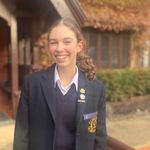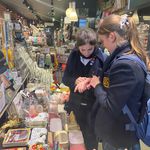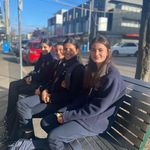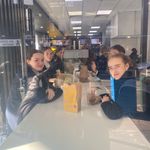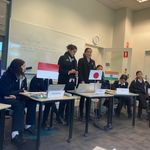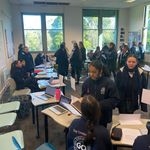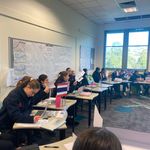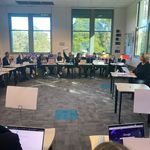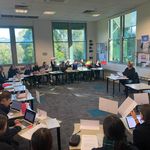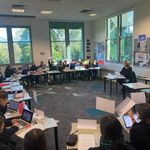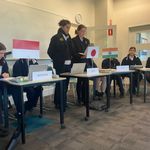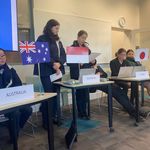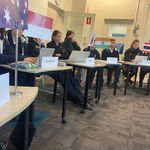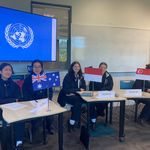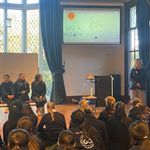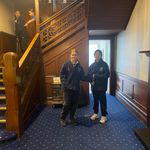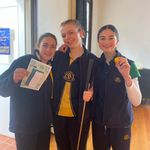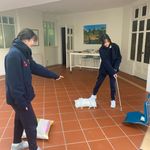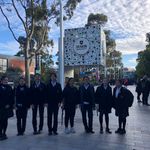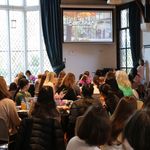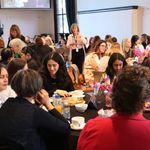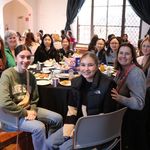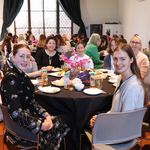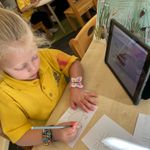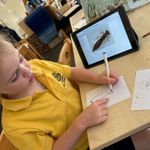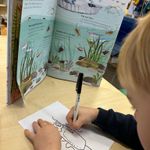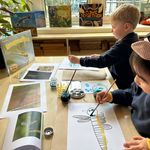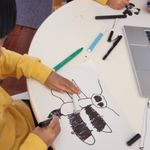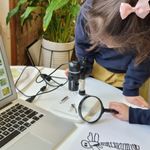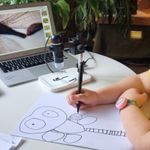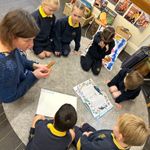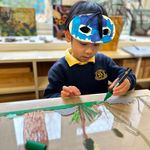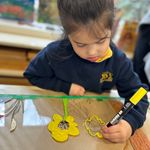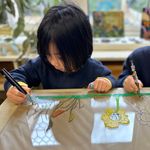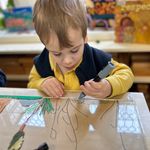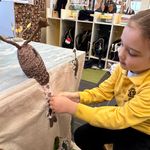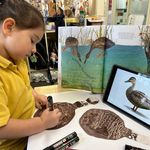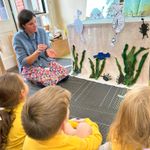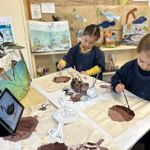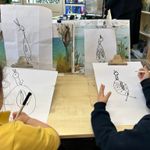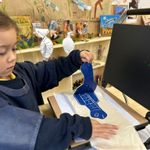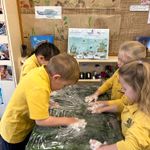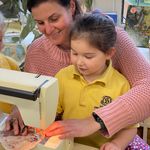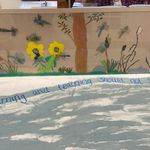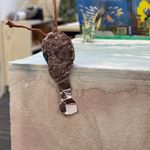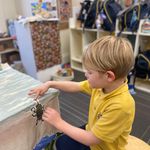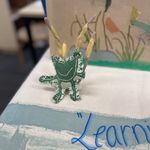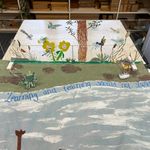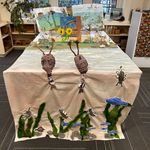Term 2, Week 9 2023 23 June 2023
Upcoming Events
 Loading events...
Loading events...
Message from the Principal

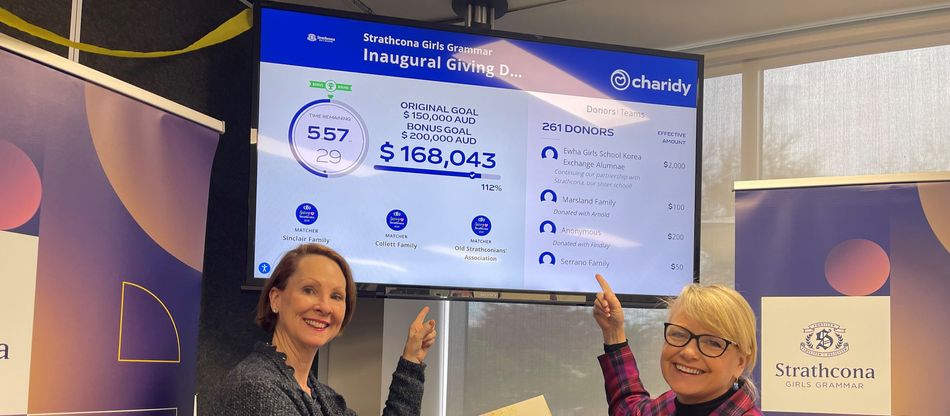
Dear Parents and Caregivers
Firstly, I would like to extend a huge thank you to the community for the generosity shown for our Giving Day. It was extraordinary that Strathcona reached its target of $150,000 before lunch! Ever aspirational, we set the bar high again and lifted it to $200,000. We managed to get to $195,421 last time I looked.
I was particularly moved by the student involvement and excitement. It is wonderful to see that they recognise their own good fortune, and that they have the generosity of spirit to give to others who are less fortunate. It was a day where they saw amazing role modelling of generosity and care for others from the adults in their world. I am sure as they go out in the world and have their own means, they will have learned to give to causes where others less privileged benefit not only from financial contribution but from using their positions as educated, informed young women to bring structural changes to make the world easier for those really struggling.
The School – and me personally - are incredibly grateful to Ms Eliza Goding whose vision, tenacity, courage and clever strategizing has led the School to such a strong start philanthropically. We are also very grateful to the volunteers who came in to work the phones. It was very exciting, and much fun was had. What a good, decent, generous community Strathy is! It is so good to start a new trend of giving to girls’ schools, rather than to the brother’ or father’s schools. I am proud that we have a cohort of mothers (and fathers) who are intentional in this regard.
Two things that have also taken place recently are that the payroll tax imposition has passed and a few staff attended a very good professional development experience, some of which I would like to share with you.
If you are interested in hearing where ISV is positioned at the moment, please see Michelle Green from ISV speaking about it below.
And secondly, as we close off this term, I thought I would share with you some of the notes I took at a recent Asia Pacific Summit on Girls’ Education I attended in Hobart. Two of our staff, Sharon Turner (Junior School Psychologist) and Kimberley Moor (Head of Art and Design) were invited to be presenters and their sessions were very well attended. Sharon spoke on the topic ‘Supporting parents to build their daughters capacity to cope with change and difficulties' and Kimberley spoke on Design Thinking.
Dame Jenny Shipley, first female Prime Minister and Patron of the Alliance of Girls Schools opened the Conference, and she was just so impressive. She rallied us as educators of girls and young women to get excited about what our collected alumnae are capable of in how they can participate in and shape this rapidly changing world. Her message was ‘to be bold’ which aligns beautifully with Strathcona’s motto about ‘Bravery’ which we morphed into ‘Unstoppable’.
At the conference, there was much about teaching and learning, of course, and an excellent Master Class about managing a workforce in challenging times post COVID where people are making all sorts of decisions and trends not seen before. I think this is happening in all organisations, not just schools.
A theme emerged from a range of speakers which is interesting and may be worth bringing to your attention given it seems to be a preoccupation of leading educators around the country. It was around two things which are somewhat related. These were pathologizing or medicalizing of what, in reality, are normal human responses to life’s ups and downs, for example, being sad when something disappointing happens. Coincidentally, an article published in The Guardian this week also expresses some of the concerns of presenters at the conference.
The other theme was about a parenting tendency which some believe has emerged in recent years. Dr Judith Locke, who treats many young people and their families and who has undertaken much research spoke on the topic ‘Getting the Message Right: Ensuring Schools Work Towards Preventing Overparenting’. Here in dot points are some of the takeaways:
- ‘Overparenting’ is done in higher SES homes (lower SES families don’t have the resources)
- It can be linked to neoliberalism – ‘everything is a race’ so keep pushing to be first across the finishing line
- Parents put huge pressure on themselves to make sure everything in their child’s world is as perfect as they can make it
- If something is not quite right, they look for reasons – it is someone’s fault (usually the school) or the child has something wrong eg ADHD or an anxiety disorder (Dr Locke believes there has been a lowering of the diagnostic bar and some kids are starting to feel there is something wrong with them if there is not something wrong with them)
- Many students develop a learned helplessness – they have been led to believe there is something wrong with them, that they are special, and that they cannot do anything without special treatment or their parents’ assistance or intervention (or medication)
- This plays out strangely in a university setting and in the early years of a young person’s working life where they are expected not to need their parents’ constant help
- More parents increasingly are phoning universities and workplaces trying to ‘right’ things for their adult children
- Some working women who must meet KPIs at work almost put KPIs on their own parenting (around the child’s marks, parties invited to, popularity, selection for teams etc)
- There was discussion around the ‘good enough’ mother being ideal, rather than the ‘perfect’ mother
- Dr Locke says she has seen a ‘Mama Bear’ mentality emerging where the mother takes the role of protecting her child against the world; they are hypervigilant and looking for an enemy so that they can fight for their child (‘What has the school/that teacher/friend done to you today? I’ll phone that school/parent/sports coach and tell them/fix it’)
- There is close interrogation of everything that happened when the child is not with them. A child learns to feed this need. Some young people, asserting their own independence and efficacy, push their parents away or go silent which is distressing for parents who are used to parenting in this way
- Students have a ‘parent in their pocket’ at school and some update parents a number of times a day with the parent often phoning in to the school mere minutes after a class or lunch has finished
- Dr Locke talked not very positively about ‘Mummy blogs’ where lay people and influencers are considered experts; she spoke of the WhatsApp looseness (she thought every parent WhatsApp group should have a moderator to ensure a high standard of how and what is being discussed) and the problems associated with WhatsApp being a source of truth; also the ‘death of regard for expertise and experience’ in our Google, Influencer fueled WhatsApp world
- She also spoke of the rise of the therapeutical culture where all forms of normal human experience are a source of emotional distress (rather than just part of life)
- Concept creep of psychological terms eg ‘trauma’ when it is not the case – it is just that something not so great happened and someone is thrown for a period
- Young people’s self-esteem and feelings of self-efficacy improve when they have experiences of disappointment and realise that they can cope and get on with life (and reflect proactively on what led to the disappointment taking responsibility if required
- Expecting schools to do whatever students want because of mental health, in fact, makes them weaker and risks making them preoccupied with their own mental health; it makes everyone preoccupied with mental health to an unhealthy level
- We ask too much these days ‘How are you feeling?’ – we need to believe in kids’ capacity, not expect them not to be ok
- Authoritative, loving parents work best (parents who are comfortable with being just that: a parent not necessarily ‘cool’ or a friend – being perhaps a so-called boring parent with sensible expectations and appropriate rules is fine)
- She advised schools to be careful of our own marketing – what undertakings are communicated? Schools can get caught in their own trap so then they have to do things that actually aren’t good for kids’ development or schools can bend over backwards too much to be liked and ‘popular’ which again is not in the best interests of young people who need adults with firm boundaries and belief that kids are capable
- She said she heard a principal at a welcome morning say: ‘If your child is not disappointed at school on a semi-regular basis, we are not doing our job’. We set standards and they have to work to get there. They will be disappointed with themselves and others and that is part of life and learning. This is not going to be a school where your child gets everything wanted and everything will not be perfect
- Kids need challenge or no skills get built – that goes for character as well as classwork, sport, music etc
- Schools are accommodating too much by overdoing responsiveness in wanting to care for students and this is risky for the development of students (eg parents demanding that students must be allowed to wear big false eyelashes, whatever jewellery or piercings they want, nail polish etc or their self-esteem will be damaged)
I am sorry this is a bit of a laundry list as it is straight from my notes and I think any of us as parents can tick a few boxes where we have not been able to help ourselves but her observations make you think. I chose Dr Locke’s reflections to share with you, although speakers had similar thoughts, as notes on hers were easier to take. What do I think? I think in Dr Locke’s work she would see where everything has gone wrong, but I also have to say she goes to a lot of schools and speaks with a huge range of teachers across the country. I had not seen her speak for 15 years and she was quite new to all this then. I do feel a bit cross she singled out mothers, not much – or anything - was said on fathers. Given her broad experience, I would be interested in her thoughts on the father’s place in all of this.
My thoughts are that I think some parents are very anxious for their children. Life seems complex and hard and if you can make it all as perfect as you can, well then, aren’t you a good parent if you push and try to orchestrate things as much as you can to do so? Parents love their kids – they just want the best – and parenting is something you sort of make up as you go along. I started working in the pastoral oversight of girls 30 years ago now. The highly experienced deputy and principal I trained under forecast that parenting was changing, and that this would become hard for schools to manage and that the students themselves would change. They were mostly talking about parents having fewer children later in life, both having been successful professionally, being well-resourced, well-educated, and used to making things work in their worlds. I have watched it play out over the years and, while I have communicated Dr Locke’s observations, I don’t think it is entirely representative of what we see, lacks some generosity of spirit and a sense of humour about parenting and the good and bad days of it. We all muddle through parenting from the minute we hold our babies for the first time right through to when they have their own children and are parents themselves and beyond. What has gotten me by over the years as a parent when I have gone wobbly is Dr Donald Winnicott’s idea put forward in the 1950s of ‘good enough parenting’. I often consoled myself with this idea ‘Well, I may be not quite on top of everything (and I suppose I shouldn’t be letting my 12-year-old watch The Simpson’s all time) but I think I am a good enough parent – I am certainly not negligent, I love them and mostly I keep boundaries’. Winnicott stated: ‘Striving to do things right all the time, to be ‘perfect parents’ can lead to feelings of worry, resentment, guilt, unhappiness and shame’ for the parent and does not help kids who need to see that their parents are human, life doesn’t always go to plan but generally people cope. In fact, it is reassuring for them, because they know that they are not perfect, and it gives them permission to believe that they really can ‘do’ life.
Thank you for another productive term. I wish you a warm and restful term break.
Kind regards
Marise
Principal
Message from the Dean of Teaching and Learning
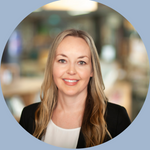
Subject and Pathways Expo Evening for Year 9-11 Students

As part of ensuring that your child is well informed and prepared for this next stage of their educational journey, Strathcona warmly invites you to attend our Subject and Pathways Expo Information Evening.
The Subject and Pathways Expo Information Evening is for current Year 9-11 students, parents and families are encouraged to attend.
This event is imperative to inform 2024 subject selections and pathways and will be an opportunity to meet with teaching staff, TAFE and university representatives and learn about the subjects on offer. On the evening, our teachers as well as TAFE and Universities providers, will be available to answer questions regarding subject choices at Strathcona and future pathway options.
Please note, subject choices do not need to be made on the night. Students will attend Year level Assemblies during this week to receive additional information on how to complete their subject selections online.
Details:
Thursday 13 July 6.00pm - 8.00pm
Featherstone Hall Presentations on Years 9 - 12 in 2024
- 6.10pm-Yr 9 Subject Briefing -Keira Wills
- 6.30pm 10-11 VCE Pathways Scott Sweeney Presenter
7 & 8 Centre - Subject Expo with Teachers and Universities and refreshments
Register your attendance here: https://www.trybooking.com/CJIZD
Should you have any questions please contact
Kara Baxter and Keira Wills
Dean of Teaching and Learning and Acting Dean of Futures
Message from the Head of Tay Creggan

A Message from the Head of Tay Creggan
Another busy week at Tay Creggan, although the promise of some holidays has meant we've finished the term on a high!
Special commendations to Olivia Collett, who represented Strathcona in the Victorian Junior Final of the Rostrum Voice of Youth competition on the weekend. Olivia was given the theme of "What needs to happen". She crafted a speech about the need for music producers and people in the entertainment industry to regulate music content as it has a direct influence on young people and can impact them adversely. Olivia was awarded 2nd Place overall - an outstanding achievement!
On Tuesday, all of Year 9 travelled to Glenferrie Road in Hawthorn to complete a "merchandising scramble"- in preparation for Envision next term and then used their information to begin their entrepreneurship journey.
Mini golf and Tay Creggan are words that generally don't appear in the same sentence, however, this week, mini golf courses in the house have been a feature of Ash Mill's PE lessons. Students have devised their tricky holes and then played a round or two.
International studies classes have completed their Model UN collaborative assessment, with two of the classes participating in a simulated debate. Students represented 16 countries and debated issues surrounding the Rohingya Refugee crisis in Myanmar.
Janet Costello, our Chaplain, ran Chapel with some assistance from Year 9 students to close the term on Wednesday. The theme of gratitude was used to reflect on the term and to give students an opportunity to remind themselves of who had helped them along their journey.
Wishing all Year 9 families a very safe and rejuvenating holiday break, I look forward to seeing everyone again in Week 4 next term.
Karyn
Message from the Director of Library and Research
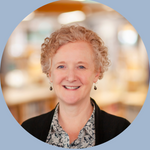
Game of Loans
One of the ways that we strive to encourage students to read is through the annual house reading competition, Game of Loans, when students compete in House groups for a pizza lunch and individual prizes. The aim of Game of Loans is to encourage students to read during the term and record their reading by reviewing their books on our online Library catalogue.
This year’s Game of Loans House reading competition finished at the end Week Eight. The winners are listed at the end of this article, but I wanted to emphasise that part of the purpose of Game of Loans is the acknowledgement that reading is not a solitary activity. People enjoy books in groups and competing as house groups supports this. It is always fun to see students recommending books to each other in class, at recess and lunchtime, and in Kaleidoscope meetings. Hearing the exchange of ideas and heated discussions is always fascinating, and a great reminder of the ways that wide reading promotes social and emotional learning as students navigate the world through books.
As parents, it is sometimes easy to forget the role that community plays in reading and the fact that we can be part of it. This often happens as our children become secure in their literacy and as they become more independent socially. As part of a continuing review of academic research about wide reading, I was recently rereading Margaret Merga’s Reading Engagement for Teens and Tweens: What would make them read more? (2019). Merga is a local academic who reviews current research and reports on her own research into reading for children and adolescents. In the chapter “Powerful Parents”, where Merga outlines the strong influence that parents can have on reading in the tween and teen years (Merga, 2019, pp. 59-75), she explains research that indicates that parental interest in, and encouragement of, reading has a strong influence on adolescents. She encourages parents to share their own interests in reading and discusses how much adolescents enjoyed these shared interests, such as fantasy fiction or biographies. Furthermore, when adolescents were surveyed, they were sharply perceptive about their parents’ reading habits. As a result, modelling reading for pleasure has more benefit than parents encouraging teenagers to read, when they never do so themselves. As ever, access to books is also important, so having books in the home and encouraging library visits is another strong support for reading. Finally, and this gives me such pleasure, reading aloud is something that has no age limit. Merga encourages all parents to read to and with their children, taking turns to read to each other, for as long as children enjoy it. As a secondary teacher, I am often reminded that students still enjoy being read to and listening as a group, as we discuss texts in English. It supports their confidence in reading and enables them to share the experience.
If you are interested in reading more of Margaret Merga’s work, she has shared much of her research on The Conversation. You can read about her research on the benefits of reading aloud here: Read aloud to your children to boost their vocabulary.
Game of Loans Winners
The overall, winning house was Grenfell, with 296 points, followed by Gilbert (280), Arnold (105) and Findlay (85). The winning house groups were: Year 6 – Grenfell, Year 7 – Gilbert and Year 8 – Grenfell. Competing students from the winning house groups will receive a pizza lunch this week.
Finally, the individual winners were, for most books read: Charlotte Lal (Year 6), Amelia Lim (Year 7), Carol Miao (Year 8), Hannah Davis (Year 9), Sarah Le Get (Year 11) and Lauren Phillips (Year 12). Special Mentions for fabulous reviews to: Sophie Wu (Year 6), Maitri Sharath (Year 6), Sophie Ng (Year 7) and Charlotte Li (Year 8). All individual winners will receive a book voucher from Readings. Congratulations to everyone who participated!
Reference List
Merga, M. (2019) Reading Engagement for Tweens and Teens: What would make them read more? Santa Barbara, California, Libraries Unlimited.
Merga, M. (2019) “Read aloud to your child to boost their vocabulary.” The Conversation. Retrieved 21/6/2023, from: https://theconversation.com/read-aloud-to-your-children-to-boost-their-vocabulary-111427
Message from the Head of Art and Design

Go Girl - Go for IT Conference Excursion
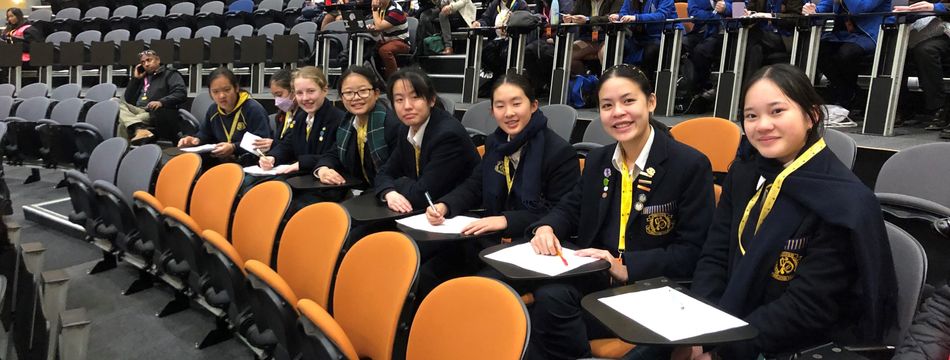
On a sunny morning, a group of enthusiastic Strathcona students gathered at Deakin University eager to explore the limitless possibilities of the IT industry. The event was dedicated to bridging the gender gap in the tech field and inspiring young women to pursue their passion for technology. The day commenced with a warm welcome from the Go Girl team, who shared their vision of fostering diversity and inclusivity in the IT sector.
The students were introduced to Deakin University's renowned faculty members, who graciously shared their expertise and insights into the exciting world of IT. Expert guest speakers showcased real-world applications and the impact these technologies have on our daily lives.
The students were captivated by the demonstrations and gained valuable knowledge about the cutting-edge advancements in the industry. Our students then were able to participate in interactive workshops from coding challenges to designing mobile apps. The workshops allowed the students to get a taste of various IT disciplines at the university as well as real-world jobs they could later pursue. These practical sessions not only honed their technical skills but also fostered teamwork and creativity.
The highlight of the excursion was the panel discussion featuring successful women leaders in the IT industry. These remarkable individuals shared their personal journeys, triumphs, and challenges, inspiring the young participants to dream big and believe in their abilities. The panellists emphasized the importance of perseverance, resilience, and continuous learning in overcoming obstacles and achieving their goals.
The Go Girl – Go for IT excursion at Deakin University proved to be an unforgettable day for all involved. The students left with a newfound passion for technology, armed with valuable insights, practical skills, and most importantly, the belief that they can make a significant impact in the field.
Kimberley Moor
Head of Art and Design and Technology
Sport News
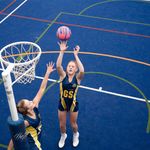
Kayaking Essendon Singles Race
Over the weekend the Strathcona Kayaking Team all participated in a Singles Canoe Marathon Race at Essendon Canoe Club. The girls raced 12km in the U18 Division, there were 21 boats in that race.
This race was the first time that Maddy Martin, Ruby Laughlin and Olivia Ma completed a race in Olympic Class Singles Boat for the first time. Charlotte Noonan came 5th in her 6km Open Age event, paddling well throughout. Bella Wallis, Abigail Wilson, Matilda Noonan, Rayna Weng, Serena Lee and Yuxin Yang all completed the 12km U18 event over the 6km U14 event, 12km being the farthest distance they have raced in singles to date. As an U14, Yuxin did particularly well, narrowly missing out on the podium coming 4th in the U18 race, behind Elizabeth Lee who was 2nd. Well done to each of the girls who participated for challenging themselves to improve and their efforts over the weekend.
OPEN 6km
Charlotte Noonan – 5th
U18 12km
Elizabeth Lee – 2nd
Yuxin Yang – 4th
Rayna Weng – 6th
Serena Lee – 10th
Bella Wallis – 12th
Ruby Laughlin – 13th
Matilda Noonan – 14th
Olivia Ma – 16th
Maddy Martin – 19th
Community Relations
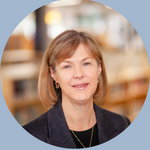
Community News
Strathcona Mother/Daughter Morning and High Tea
On Sunday we hosted 180 mums and daughters at Tay Creggan for both a morning and afternoon tea. The events were so popular that both sessions booked out within an hour.
It was a wonderful day and great to see so many families enjoying the delicious array of treats in such a beautiful setting. These events were definitely a winner with our community.
A big thank you to Cathy Smith, Amber Smith and Amanda Orgill for their support.
Year 12 Responsible Service of Alcohol Course
A reminder to register to attend the RSA course that will be conducted by RSA for Schools on Monday 10 July 2023 (day prior to the start of Term 3) commencing at 9am. The duration of the course is 4 hours and morning tea will be served.
$65.00 per student and to register please click here.
Dad/Daughter Bowling Afternoon
The Strathcona Family Association invites you to an afternoon of fun bowling. When: Sunday 6 August 2023 - 4pm – 6pm Where: Healthways Recreation Centre, 1-11 Arcade Road, Mont Albert North Cost: $20 per person. The cost covers: - - bowling - bowling shoes for use at the venue - pizza and soft drink (No alcohol) What to bring: Your best bowling form. As this is an indoor venue, spaces strictly limited, so don’t delay. To book please click here.
Note: No experience in bowling is necessary and girls can form their own teams on the day!
Wishing everyone a safe and happy holiday break. Watch out for more events in Term 3!
Warm regards
Jo
Early Years Campus News
Exciting Project from the Early Learning Centre
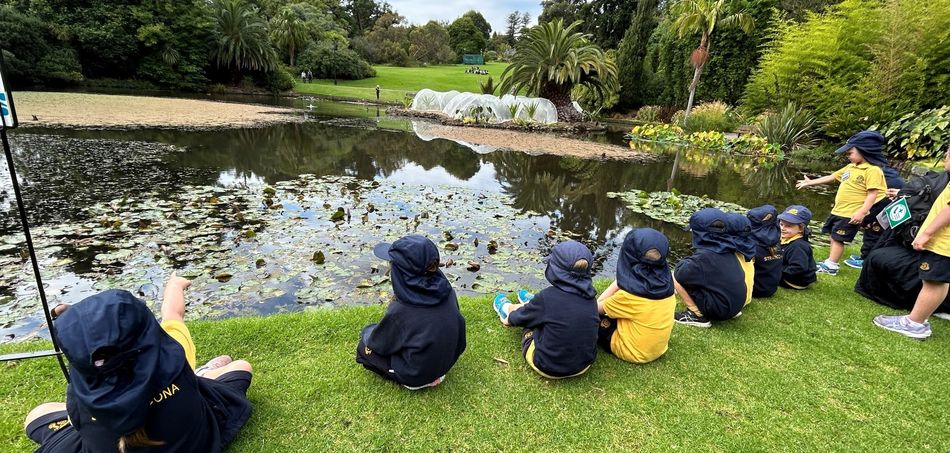
Strathcona ELC was thrilled to be invited to contribute to an art installation at this year’s Reggio Emilia Australia Information Exchange (REAIE) conference, Landscapes of Curiosity and Creativity: in Dialogue with the 100 Languages. The conference will be held at the Melbourne Convention and Exhibition Centre, (MCEC) over the term break, bringing both Australian and International delegates together.
The art installation is a collaborative piece created by children across Melbourne early learning centres and schools. The Birrarung (Yarra River), was chosen as our focus, being an iconic part of Melbourne. Its waterways connect us all and provide many opportunities for curious, creative exploration in our classrooms.
The inspiration for Strathcona ELC’s inquiry began from a recent excursion to the Botanic Gardens. The children worked collaboratively in two groups to research the biodiversity of life, the hidden world, and explore what lives in and around our connecting waterways.
The Wattle Group research was drawn to what lives below after an encounter by the edge of the Botanic Gardens Lake. As the children watched the delightful movements of the ducks, excitement and joy would erupt as the ducks disappeared underwater, leaving their legs and feathery bottoms in the air. What were these ducks finding?
Together they researched the array of water bugs and eels within the waterways of Birrarung Yarra. As the inquiry progressed, the children chose what water life they would contribute to the art piece. The process comprised of felting water grass, turning drawings into ink prints and 3D ducks looking under the water. The ducks provided the children with many cognitive ‘knots’ as it challenged their understanding of perception and scale when creating these in three dimensions.
The Melaleuca and Jacaranda Group explored the diversity of insects above the water and specimens of dragonflies collected over summer were placed under the digital microscope for closer inspection. This opened a treasure of wonders bringing to light the delicate lacelike wings, bold patterns, and iridescent colouring we had not expected. Oh! How beautiful, they have jewels! Amelia
The observational drawings were printed on transparency and added to Perspex to provide a cluster of dragon flies in flight alongside the waters edge. Once the art piece was placed together the children were proud to show their contribution with their family and friends.
Jo Dowling Director of Early Learning Centre and the Early Learning Centre team
News from Careers

Career News
Items in this Career News include –
- Dates for your Diary
- Change in Careers
- Monash STEM International Experience Day
- Undergraduate Studentships at the CSIRO
- Richmond Institute of Sports Leadership
- What can I do with an Arts Degree?
- Animals, Conservation, Wildlife & Zoology Degrees in Victoria in 2023
- Snapshot of The University of Melbourne (UoM) in 2023
Please click here for the full edition of Career News.
Joanna Buckley
Head of Careers and Partnerships

